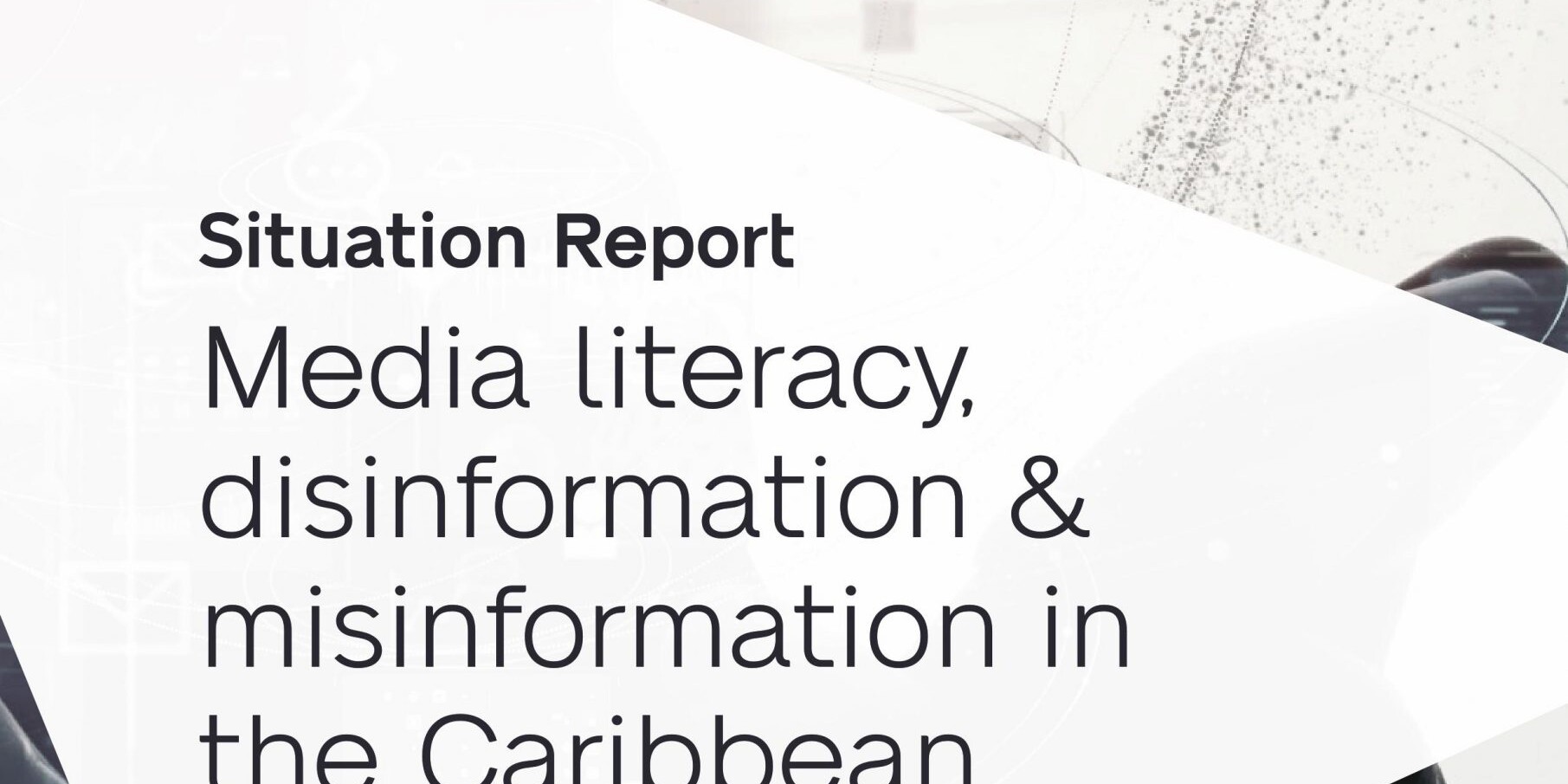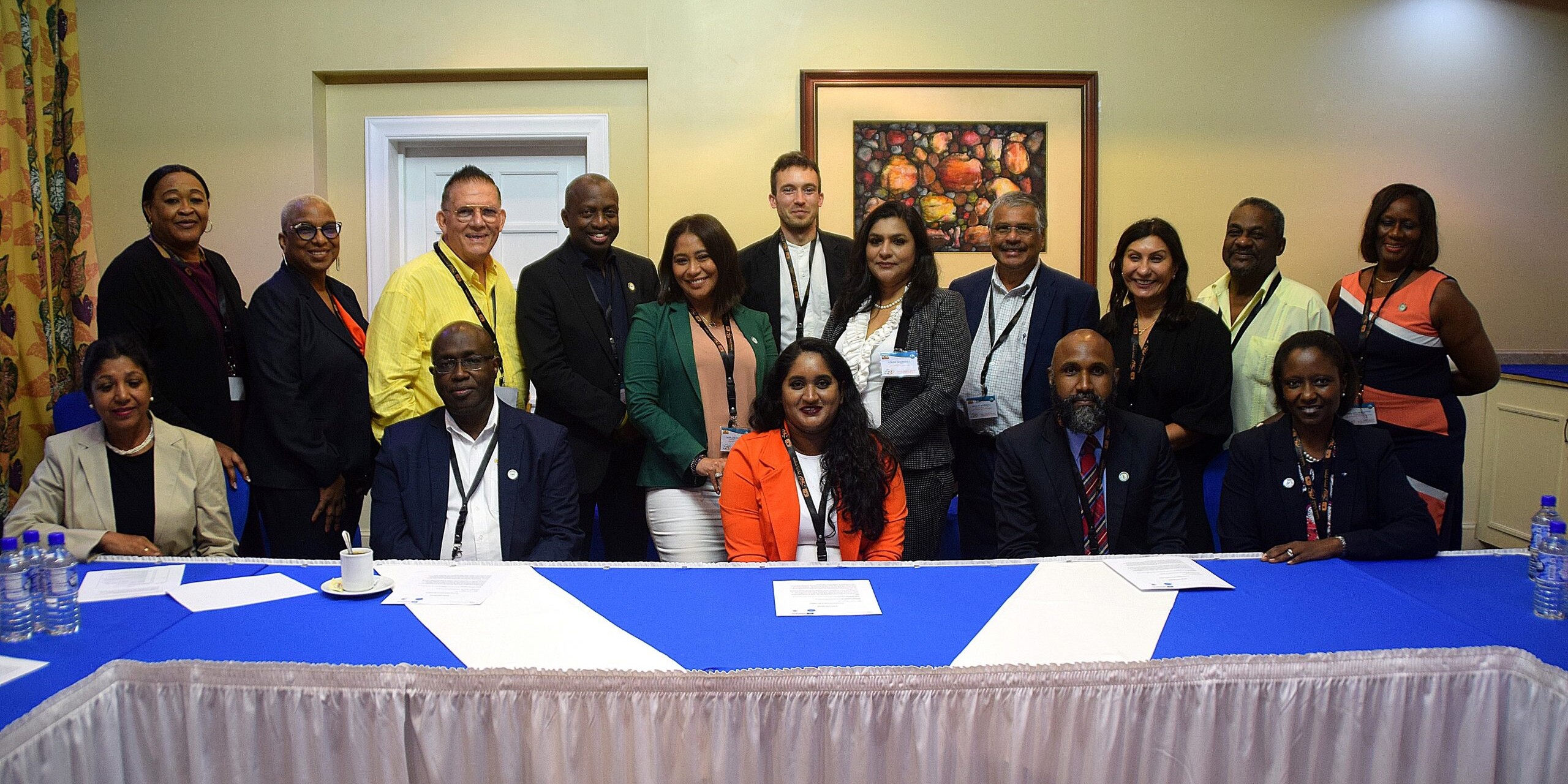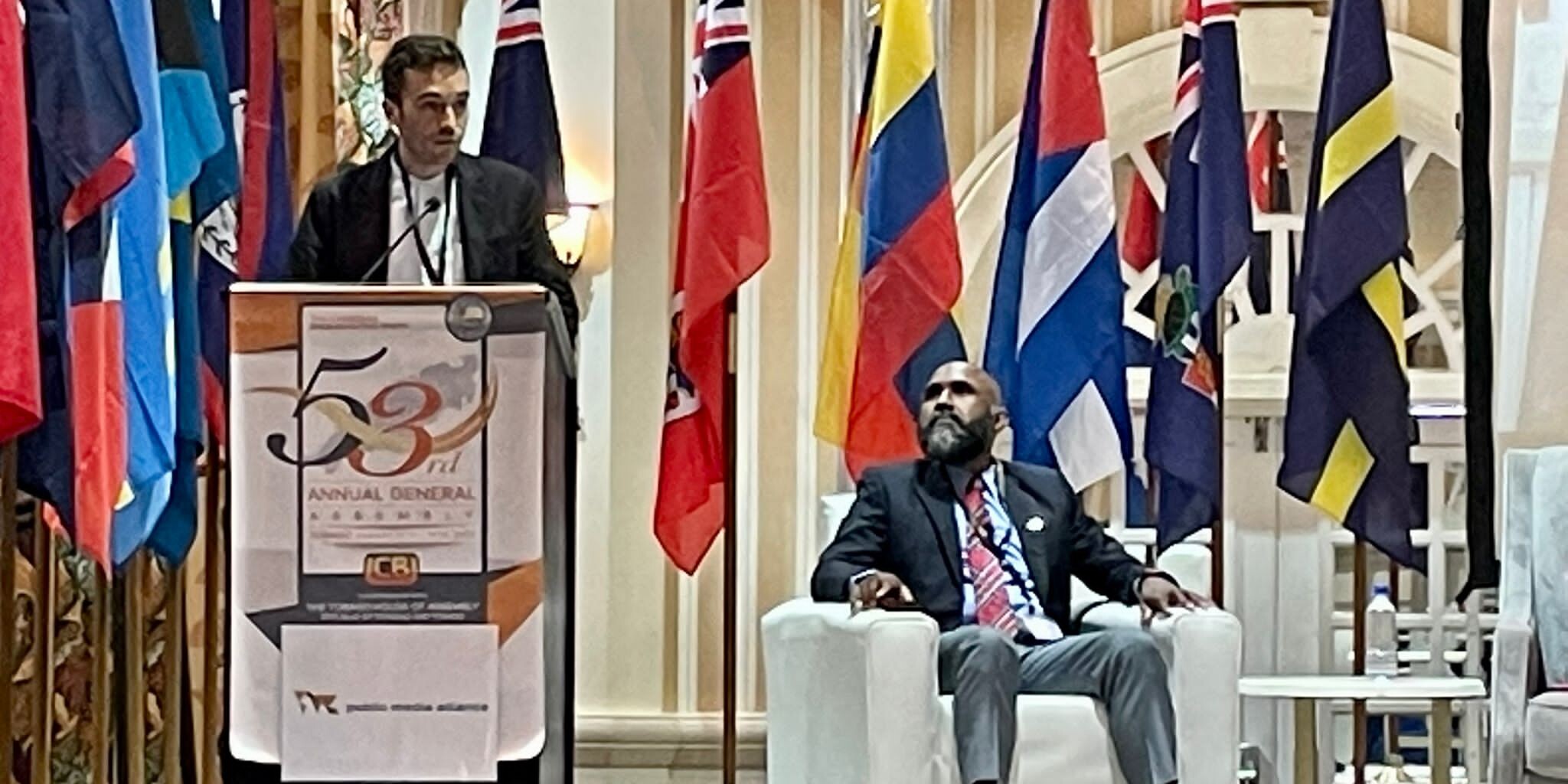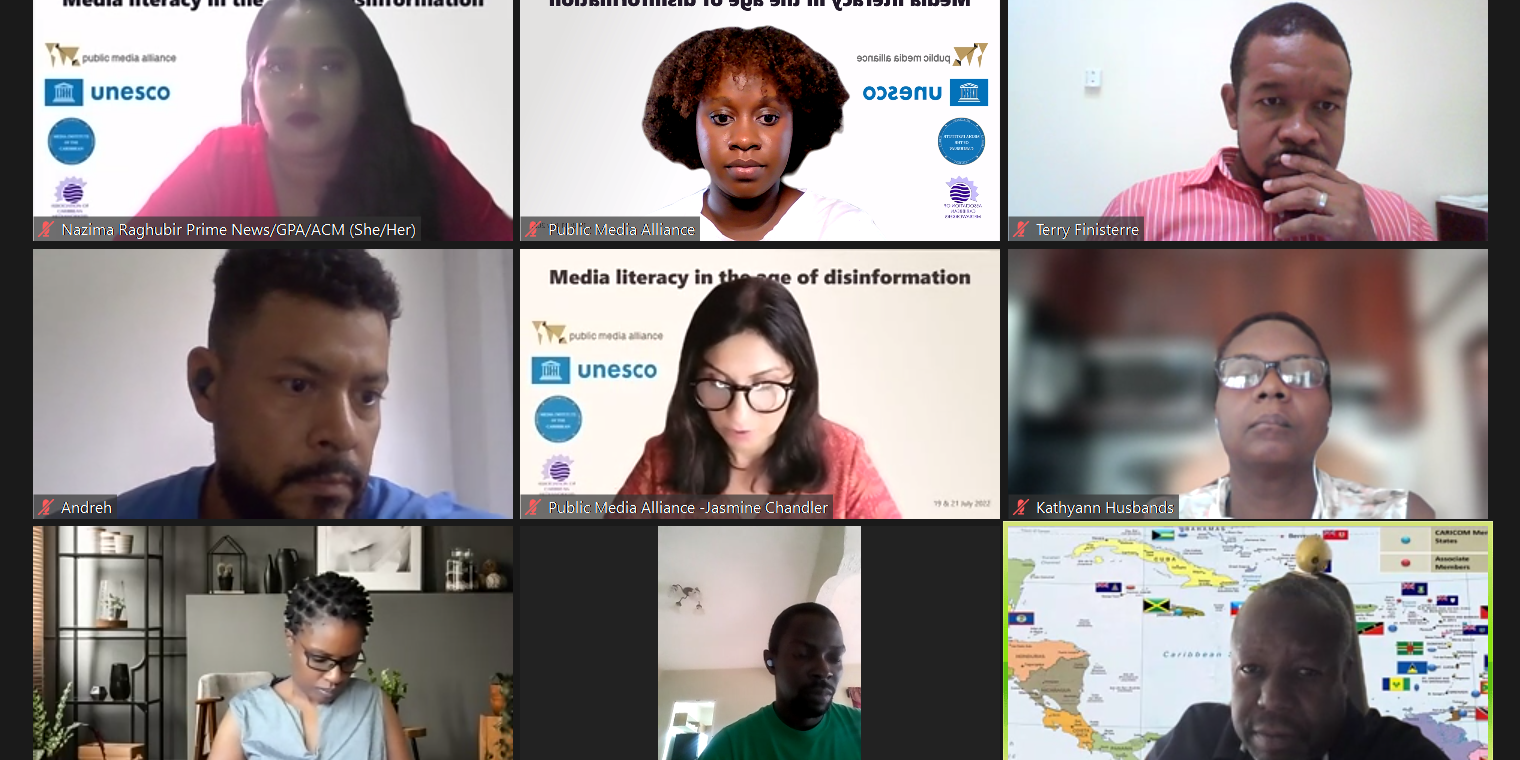Project
What?
The project’s final objective was to contribute towards improved media and information literacy in the Caribbean by laying the foundation for more careful reporting, fact-checking, transparency regarding media ownership, and increased regional collaboration. The project was split across three key activities:
- A situation report and analysis of media literacy, disinformation, and trust in news across the Caribbean.
- A two-day virtual workshop for journalists to reinforce their capacities and skills, and improve the ability of news media to promote media literacy and combat disinformation.
- A hybrid event to discuss dis- and misinformation, media literacy, and the feasibility of a Caribbean-wide trusted news project.
Why?
The Caribbean has a vibrant and diverse media landscape, with rapidly developing digital services. However, mis- and disinformation have increased across the region, particularly during the COVID-19 pandemic, natural disasters, and crises, posing a threat to the regional media environment, and the life and wellbeing of its citizens. Improved media and information literacy is a necessary and a pivotal way of tackling disinformation in society, along with trust in verified independent news and citizen engagement.
Meanwhile, the potential for collaboration in the Caribbean media landscape remains relatively untapped. One solution is to create a strong Caribbean-wide network of affordable and accessible sources of verified news. The project explored the viability of cross-border collaboration for fact-checking initiatives that support media literacy and fight disinformation while improving the capacity of Caribbean media workers to promote media literacy and thwart disinformation.
When?
This project ran from June to November 2022.
Latest updates
OUT NOW | Caribbean mis- and disinformation Situation Report
9th December 2022
Greater media literacy needed to counter mis- and disinformation across the Caribbean, shows new situation report from PMA and partners.
Caribbean media and information literacy and disinformation action plan launched
2nd November 2022
PMA's Caribbean media and information literacy and disinformation action plan is out now, along with a preview of our upcoming situation report.
SAVE THE DATE | PMA to launch Caribbean action plan and research
25th October 2022
Join us as we launch the executive summary of our research report, “Media Literacy, Trust, and Disinformation in the Caribbean.”
PMA highlights: CBU’s 53rd Annual General Assembly in Tobago
30th August 2022
The Public Media Alliance recently attended the CBU's 53rd Annual General Assembly. Here are the highlights from PMA's time in Tobago.
Kristian Porter: Speech on media literacy, mis- and disinformation
17th August 2022
PMA's CEO called for a multi-stakeholder, collaborative effort to combat mis- and disinformation during his speech at CBU's AGA.
Caribbean disinformation workshop sees successful conclusion
26th July 2022
Our two-day virtual disinformation and media literacy workshop for Caribbean media workers has successfully concluded.
Project reports
Situation Report: Media literacy, disinformation & misinformation in the Caribbean
2022
The Public Media Alliance’s latest situation report has called for a programme of media and information literacy across all levels of the school curriculum, to counter the threat of mis- and disinformation in the Caribbean.
The “Situation Report on Media Literacy, Disinformation & Misinformation in the Caribbean” covers eight Caribbean nations – the Bahamas, Barbados, Grenada, Guyana, Jamaica, St. Vincent & the Grenadines, Suriname, and Trinidad & Tobago – and examines each country’s relationship with media and information literacy, disinformation, and trust in news. In each country, research was undertaken over a period of five months. Separately, research was conducted by ACM to determine the feasibility of a regional trusted news network.
It was produced in partnership with the Association of Caribbean Media Workers (ACM) and the Media Institute of the Caribbean (MIC), and with support from the UNESCO Cluster Office for the Caribbean and UNESCO’s International Programme for the Development of Communication (IPDC).
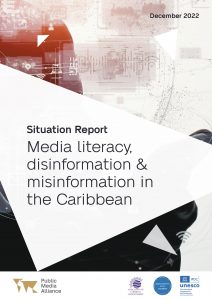 Key findings from the report:
Key findings from the report:
- Unique challenges: No two country was exactly the same and the report highlights the unique challenges of each researched country, as well as the similarities across borders.
- The need for more regional research: Notably, the situation report emphasises that more analysis is needed across the region to tackle disinformation, media literacy, and trust in news media.
- Barriers remain: Barriers remain to achieving media literacy, particularly legislatively. Newsrooms are strapped for resources in an economically difficult environment (further exacerbated by the repercussions of the pandemic) and are working in highly competitive landscapes with pressure to report news before competitors.
- Opportunities abound: Importantly, the report also demonstrates achievable opportunities for regional media organisations and governments.
Download the situation report:
Action Plan: Combatting misinformation and disinformation for Caribbean media workers
2022
The Public Media Alliance is pleased to release our latest publication: an eight-point action plan geared at supporting the Caribbean media landscape in their promotion of media and information literacy and their fight against disinformation.
This eight-point action plan charts the course for more robust efforts to tackle both misinformation and disinformation while committing to media literacy for all, with the goal of rebuilding trust in news media.
It is part of a wider project spearheaded by the Public Media Alliance, titled “Developing a Situation Report & Action Plan on Media and Information Literacy and Disinformation in the Caribbean”.
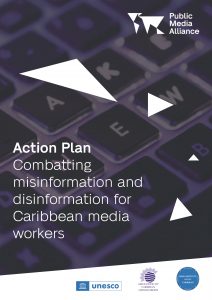 The plan incorporates key points raised by regional media stakeholders as part of PMA’s research and feedback. The plan not only benefited from consultations from both media professionals and media owners/managers, but also from months-long research conducted in several Caribbean territories. Key points include:
The plan incorporates key points raised by regional media stakeholders as part of PMA’s research and feedback. The plan not only benefited from consultations from both media professionals and media owners/managers, but also from months-long research conducted in several Caribbean territories. Key points include:
- The need for strengthened and increased collaboration among regional journalists, media associations, and media houses.
- The importance of launching a public awareness campaign aimed at empowering audiences on how to spot mis- and disinformation.
- A commitment to train and develop the region’s journalists.
Download eight-point action plan:
Project partners
The project was organised by the Public Media Alliance with support from UNESCO Cluster Office for the Caribbean and UNESCO’s International Programme for the Development of Communications and were developed in partnership with the Association of Caribbean Media Workers (ACM) and the Media Institute of the Caribbean (MIC). We extend our thanks to our project facilitators, Ms. Kiran Maharaj of MIC and Ms. Nazima Raghubir of ACM, for their invaluable support and input and for overseeing key project elements. Special thanks are also extended to our workshop trainers and participants.

With support from
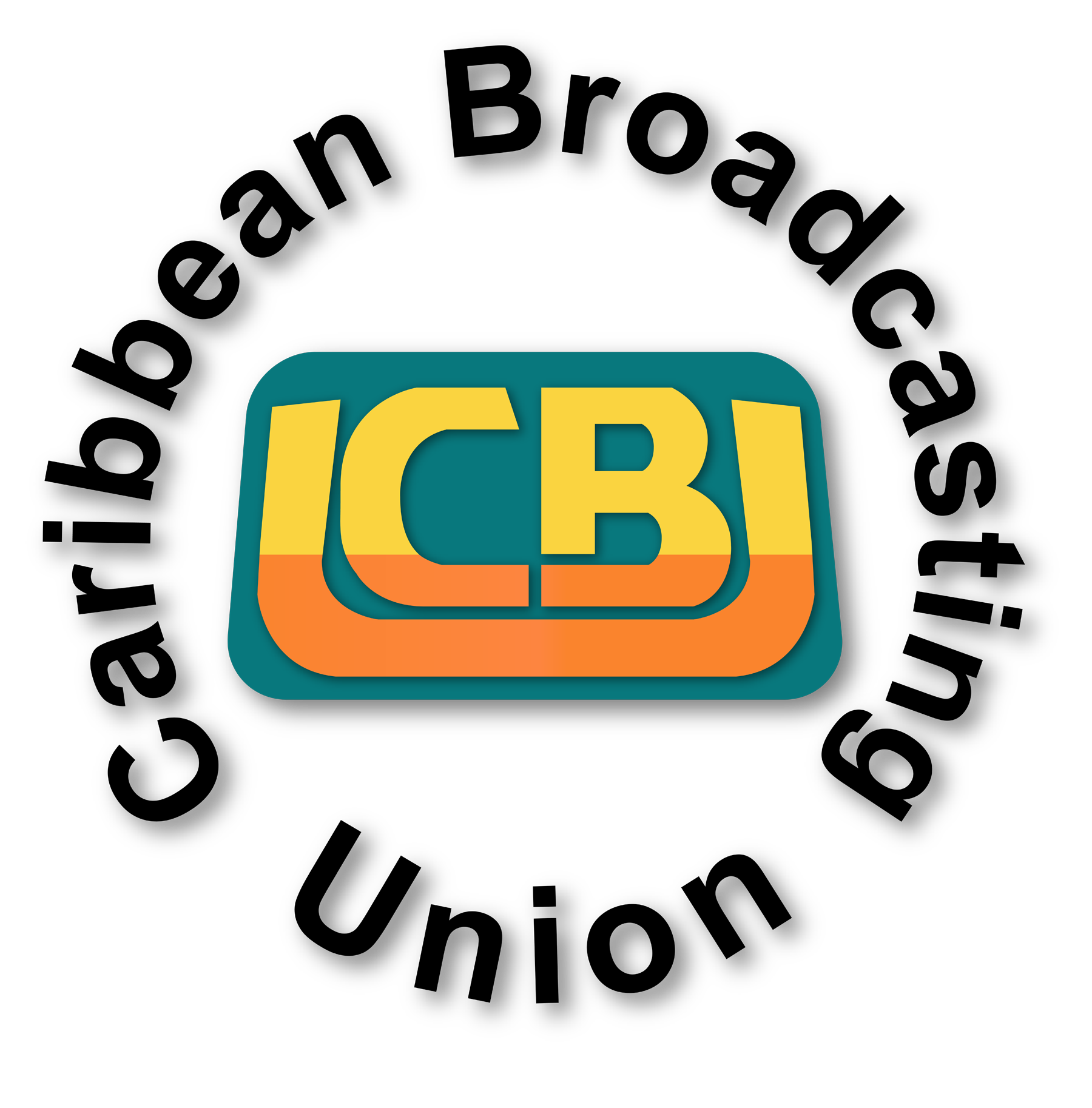
Featured image: Text FAKE NEWS as keyboard letters lying on a sea of old keyboard letters. Credit: clue/iStock
Secondary image: PMA hosted a closed-door roundtable event for senior Caribbean media executives on 16 August in Tobago. The roundtable was held during the Caribbean Broadcasting Union’s 53rd Annual General Assembly.
